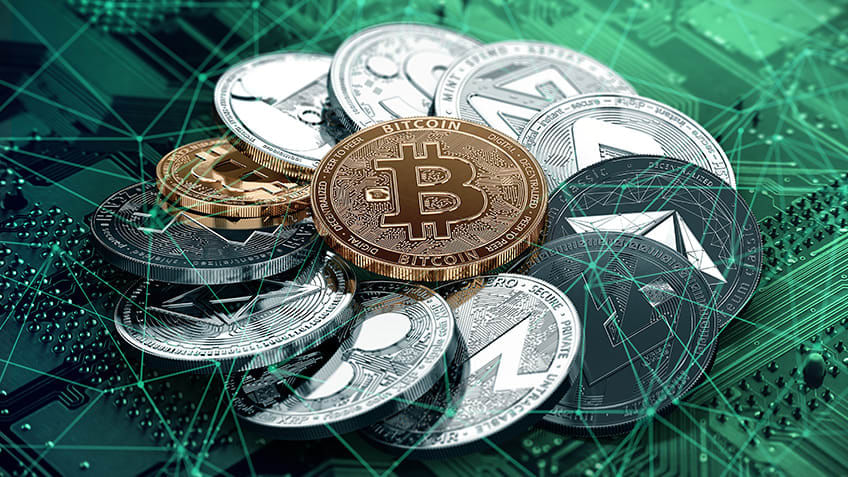Are all cryptocurrencies based on blockchain
There really isn’t one “best” cryptocurrency since each has different features built in based on what the developer designed it for. Here’s an overview of some of the most popular digital coins and how each is being used https://backlinkbuilder.biz/.
Those tokens have no monetary value whatsoever. Moreover, they have no value outside of the system itself. As such, general acceptance is never even a question. It is not necessary. Only those using the shipping system itself have any need for the tokens.
As you can see, cryptocurrencies are not all the same. There are many differences between them, some minor and others more substantial. The lesson here is one of doing your homework before you get involved in any particular cryptocurrency.
The comparison between digital currency and cryptocurrency reveals that they are two distinct classes of financial assets. It is important to identify the differences between them to identify scenarios that would be suitable for using them. Digital currencies and cryptocurrencies are new types of financial instruments with unique features and distinct advantages.
Investing in cryptocurrencies is a little different than investing in shares of a company. Stock represents ownership of a business and a claim to profits the company generates. Purchasing coins of a cryptocurrency, though, is a speculative bet on the price movement of that digital currency — which can be highly volatile and is subject to the law of supply and demand since digital currency by itself is not a dynamic asset. Cryptocurrencies can be exchanged for other digital currencies or for fiat currencies like the U.S. dollar using a digital wallet on a trading app.
Do all cryptocurrencies use blockchain
On some blockchains, transactions can be completed and considered secure in minutes. This is particularly useful for cross-border trades, which usually take much longer because of time zone issues and the fact that all parties must confirm payment processing.
Public perception of blockchain and cryptocurrencies, in particular, remains uneasy. High-profile collapses of once-trusted cryptocurrency brokers, such as Mt. Gox back in 2014, or FTX in November 2022, persistence of various crypto scams, and general skepticism towards new technology and its bold promises, all contribute to ongoing public skepticism about a decentralized future. As of 2024, 44% of Americans still say they will never purchase a cryptocurrency.
Because of this distribution—and the encrypted proof that work was done—the blockchain data, such as transaction history, becomes irreversible. Such a record could be a list of transactions, but private blockchains can also hold a variety of other information like legal contracts, state identifications, or a company’s inventory. Most blockchains wouldn’t “store” these items directly; they would likely be sent through a hashing algorithm and represented on the blockchain by a token.

On some blockchains, transactions can be completed and considered secure in minutes. This is particularly useful for cross-border trades, which usually take much longer because of time zone issues and the fact that all parties must confirm payment processing.
Public perception of blockchain and cryptocurrencies, in particular, remains uneasy. High-profile collapses of once-trusted cryptocurrency brokers, such as Mt. Gox back in 2014, or FTX in November 2022, persistence of various crypto scams, and general skepticism towards new technology and its bold promises, all contribute to ongoing public skepticism about a decentralized future. As of 2024, 44% of Americans still say they will never purchase a cryptocurrency.
List of all cryptocurrencies
The first chain to launch smart contracts was Ethereum. A smart contract enables multiple scripts to engage with each other using clearly defined rules, to execute on tasks which can become a coded form of a contract. They have revolutionized the digital asset space because they have enabled decentralized exchanges, decentralized finance, ICOs, IDOs and much more. A huge proportion of the value created and stored in cryptocurrency is enabled by smart contracts.
TThe data at CoinMarketCap updates every few seconds, which means that it is possible to check in on the value of your investments and assets at any time and from anywhere in the world. We look forward to seeing you regularly!
Almost. We have a process that we use to verify assets. Once verified, we create a coin description page like this. The world of crypto now contains many coins and tokens that we feel unable to verify. In those situations, our Dexscan product lists them automatically by taking on-chain data for newly created smart contracts. We do not cover every chain, but at the time of writing we track the top 70 crypto chains, which means that we list more than 97% of all tokens.

The first chain to launch smart contracts was Ethereum. A smart contract enables multiple scripts to engage with each other using clearly defined rules, to execute on tasks which can become a coded form of a contract. They have revolutionized the digital asset space because they have enabled decentralized exchanges, decentralized finance, ICOs, IDOs and much more. A huge proportion of the value created and stored in cryptocurrency is enabled by smart contracts.
TThe data at CoinMarketCap updates every few seconds, which means that it is possible to check in on the value of your investments and assets at any time and from anywhere in the world. We look forward to seeing you regularly!
Almost. We have a process that we use to verify assets. Once verified, we create a coin description page like this. The world of crypto now contains many coins and tokens that we feel unable to verify. In those situations, our Dexscan product lists them automatically by taking on-chain data for newly created smart contracts. We do not cover every chain, but at the time of writing we track the top 70 crypto chains, which means that we list more than 97% of all tokens.